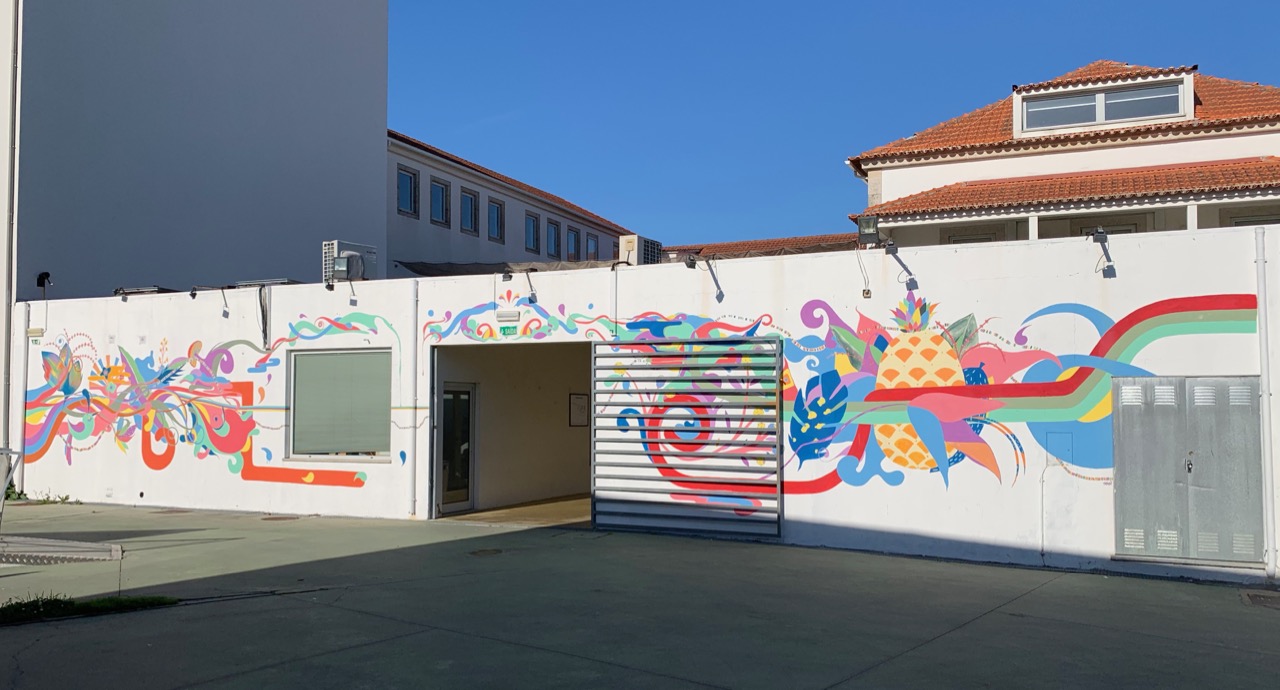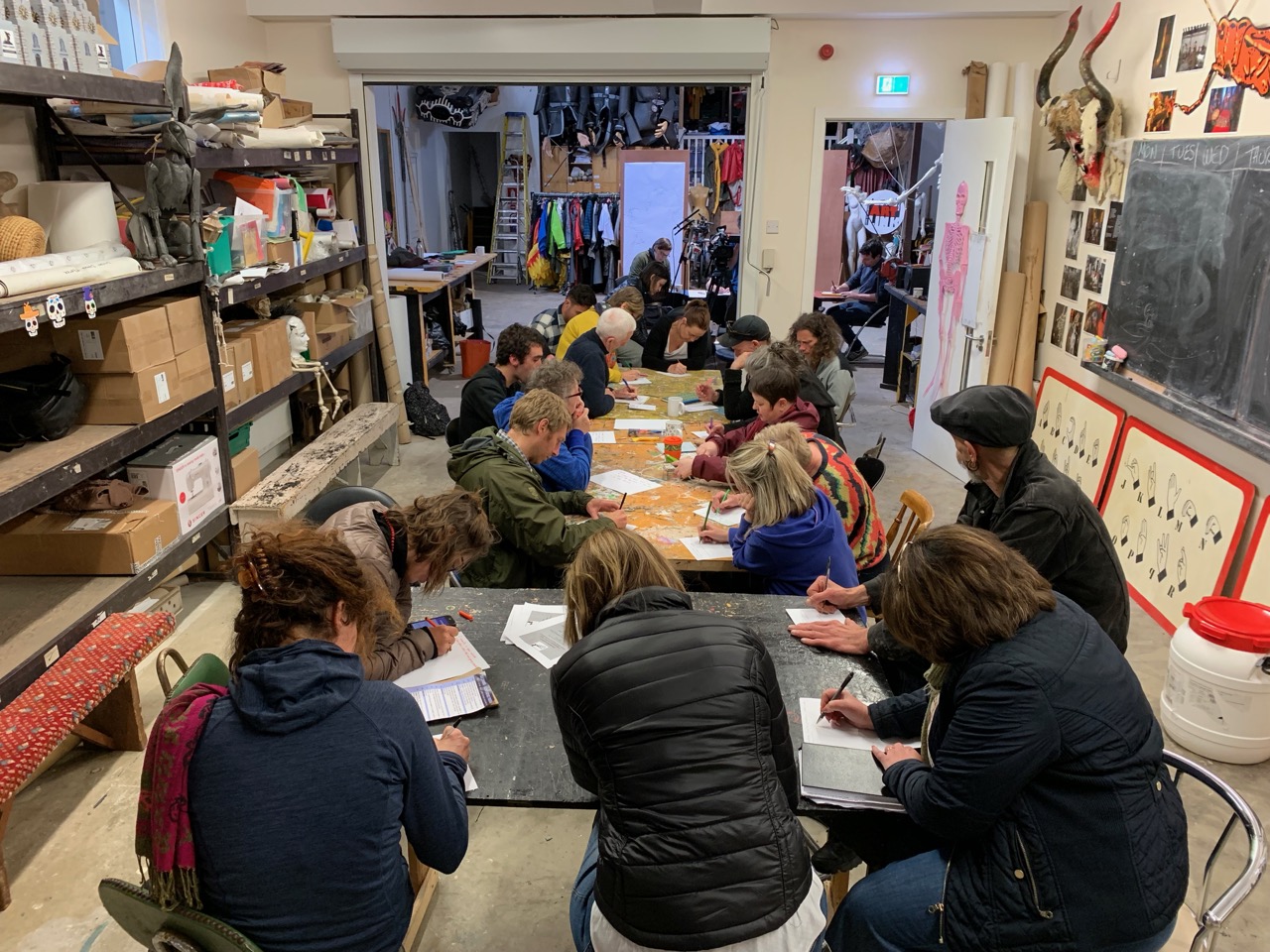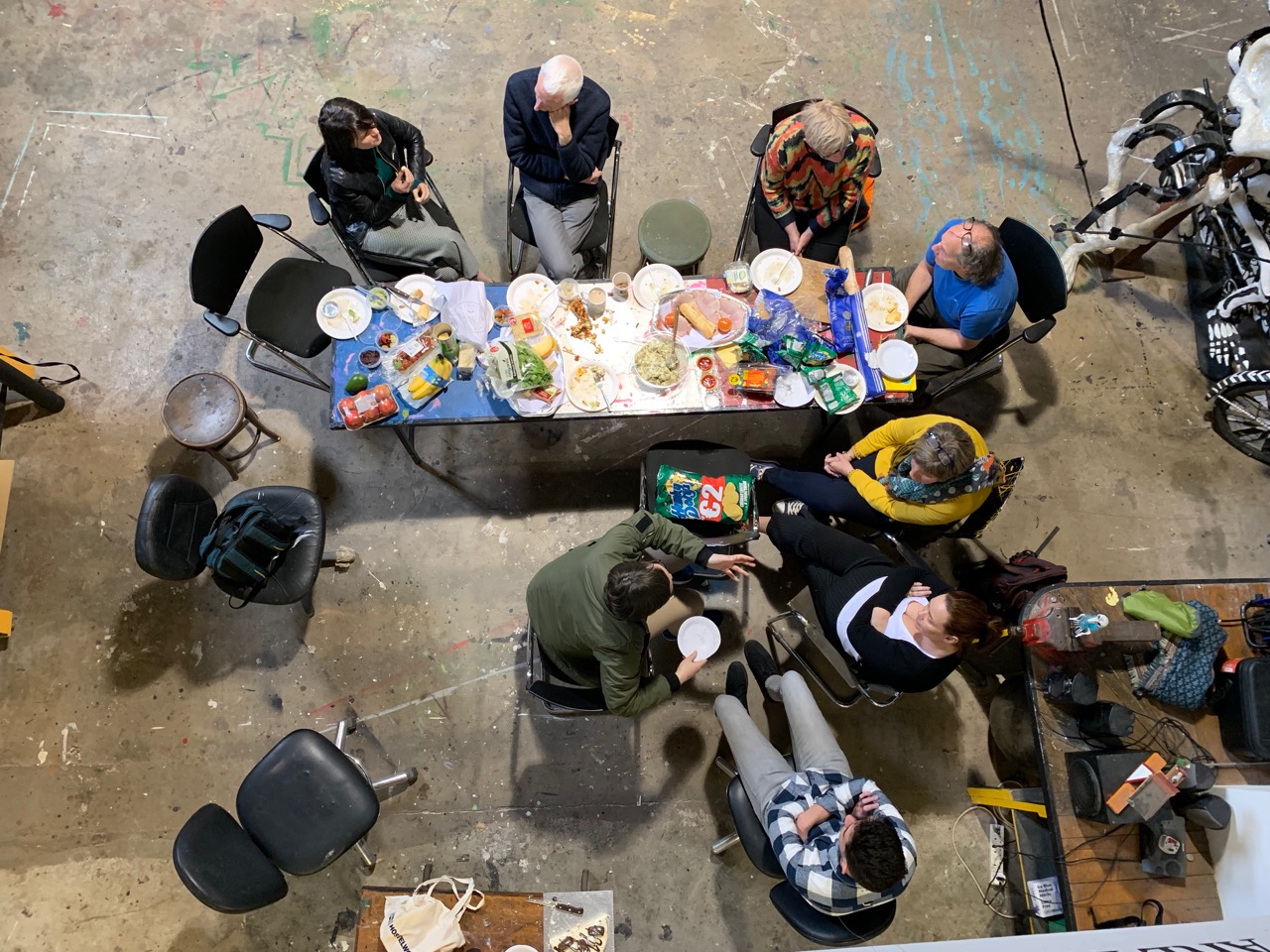In the past ten days, I have visited two exceptional community art projects: ACERT in Tondela (Portugal) and Cork Community Art Link in Ireland. ACERT has been making art with people since the 1970s, and Art Link since the 1990s. They have much in common—visionary leadership, an original aesthetic, strong principles and committed local support. Each has an important place in the history of community art in Europe. I would like to be writing about their fantastic street art, or their work with marginalised people, and I’ll come back to that another time, but right now, I want to talk about money.
ACERT is the bigger, better funded organisation, with a base in a brilliantly converted former school. It receives funding from the Ministry of Culture and the local council, and employs a team of 14, including several who have been there from the start. Art Link also has a good building, a converted cinema, and a team of seven, also led by its founder; it too receives funding from the state and the local council. But the reality is much less comfortable. In both organisations, funding accounts for about a third of turnover. The rest must be found each year, with ingenuity and bravado from a myriad of sources. They are not like theatres or orchestras, making up their budgets with ticket sales. Much of ACERT’s and all of Art Link’s work is free because of the conditions in which it’s created and the empty pockets of those they serve. So ACERT earns money by spending months away from home, making outdoor performances in communities across Portugal. At home, it meets costs by running a café and restaurant, and programming on an eclectic mix of exhibitions and performances. Art Link survives because of job creation programmes. There is only one permanent member of staff: everyone else is on a fixed term contract, usually a year, that pays unemployment benefit plus €20 a week. Even the permanent staff, now in their 50s, earn incomes that don’t amount to much more than the minimum wage for the hours they put in. These organisations run principally on human not financial resources. Where there should be public funding there is personal commitment.
During these visits, I also got to talk with young artists, hearing about their work, ideas and hopes for the future. Some of them left school or college as the financial crisis hit their countries. I’ve listened to talented, committed people who have never had a real job – people in their late 20s or early 30s who feel as if their lives have not started. In a city with streets of shuttered buildings, I met people spending more than half their meagre income on rent, knowing that their landlords can put them out on the merest excuse. Many are not artists, in the sense of having been to art college. They have gravitated to Art Link or ACERT because they have energy, creativity and above all a need to do something, and both organisations are doing invaluable work in giving this abandoned generation a framework in which to do something positive.
It doesn’t have to be like this. Elsewhere, in Portugal, Ireland and throughout Europe, there are cultural institutions where people are paid correctly, where they have pensions and subsidised restaurants, where their biggest professional problem is how to include ‘hard to reach’ communities. In A Restless Art, I wrote about ‘grass-roots organisations with limited resources and bureaucratic obligations […] caught on a treadmill of delivery, the insecure workers in the art world’s gig economy.’
ACERT and Cork Community Art Link produce work of exceptional artistic and social value. When will that be recognised by policy-makers of the rich nations of Europe in which they work?












2 responses to “Let’s talk about money”
Interesting and depressing but also familiar. The big problem is that mainstream funding (for example NHS mental health funding, education budgets for adult education) just doesn’t get to the small, independent enterprises you describe. It should do but doesn’t because governments like to deal with large corporations (such as FE Colleges, big charities like MIND) who tend to be contracted to deliver annual programmes. If you can’t access the mainstream funding then even though plenty of agencies want to refer their clients, the participants come with no payment attached. We are forced to apply to charities to support the work and progressively they only want to fund projects – not annual running costs. Gaps between projects cause huge financial problems and inevitably the core staff work for little reward. Except the satisfaction of the impact on participants of course! A way round this might be for consortiums to form that represent like-minded companies that could perhaps pitch for big funding…
LikeLike
You’re right that capacity is an issue for grassroots organisations. ACERT told me that they don’t have capacity to invest in applications: they’ve only two administrative staff and everyone has their hands full meeting existing commitments. So grants – which demand ever more administration to secure and manage – are hoovered up by institutions with ‘development’ staff who are in least need of them (and often have least experience or commitment to the work). Another perverse consequence of the funding system as it is currently managed.
LikeLike